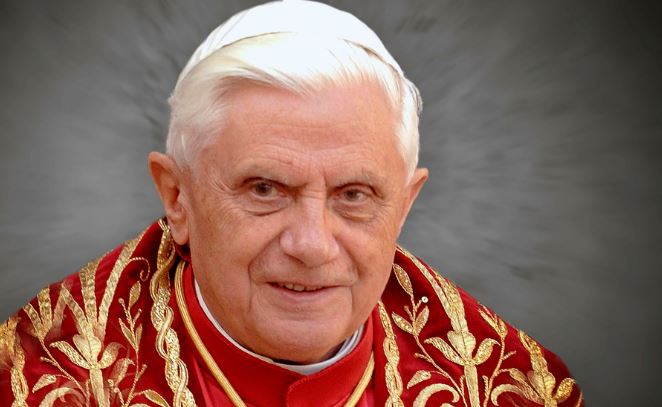Pope Benedict XVI, who served as leader of the Catholic church from 2005 until his resignation in 2013, has died aged 95, the Vatican has announced.
A statement from Vatican spokesman Matteo Bruni said: “With sorrow, I inform you that Pope Emeritus Benedict XVI passed away today at 9.34 in the Mater Ecclesiae Monastery in the Vatican. Further information will be provided as soon as possible.”
His death comes after Pope Francis announced during his weekly audience on 28 December that Benedict was “very sick”.
Benedict’s death brings to a close an unprecedented period in recent history where two popes have co-existed, a situation that has caused tensions within rival camps in the Vatican. It paves the way for his successor, Pope Francis, to consider whether to follow Benedict by retiring at some point – impossible while the outcome would have been three popes.
Benedict, born Joseph Aloisius Ratzinger in Germany in 1927, was a deeply conservative pontiff, whose tenure was overshadowed by sex abuse scandals in the church. He retired leaving a chequered reputation after a papacy that was at times divisive.
The results of a German investigation published in January 2022 said Benedict had failed to act against four priests accused of child sexual abuse when he was archbishop of Munich.
The son of a policeman, he grew up in rural Bavaria and at the age of 14 joined the Hitler Youth, a requirement, and served in the German army in the second world war. Towards the end of the war he deserted, and was briefly held as a prisoner of war by American forces.
He later became a major figure in the Vatican and, as Cardinal Ratzinger, served as a right-hand man to his predecessor, Pope John Paul II. He headed the Congregation for the Doctrine of the Faith, a Vatican department once known as the Inquisition, for 24 years, a position that earned him the nickname “God’s Rottweiler”.
During his tenure, allegations of clerical sexual abuse and its cover-up began to surface. His critics said he failed to grasp the gravity of the crimes and the scale of the crisis, which reached a peak several years after he was elected pope in April 2005.
As well as the flood of allegations, lawsuits and official reports relating to sexual abuse and the priests’ complicity in covering it up, the Vatican was also rocked by the theft of confidential documents, many of which later appeared in an exposé of alleged corruption. In October 2012, a Vatican court convicted the pope’s personal butler, Paolo Gabriele, of stealing the papers. He told the trial he had been acting against “evil and corruption”.
Benedict was a theological conservative, holding uncompromising positions on homosexuality and contraception. He had strongly opposed liberation theology, a radical movement that began in South American in the 1960s and advocated clerical social activism among the poor and marginalised.
His sudden resignation, at the age of 85, in February 2013, the first pope to do so since the middle ages, left the church reeling. He said at the time that he did not have the strength to carry on as leader of the world’s estimated 1.2 billion Catholics. “I have had to recognise my incapacity to adequately fulfil the ministry entrusted to me,” he said.
He took the title of Pope Emeritus, and pledged to remain “hidden to the world”, devoting himself to private prayer. He retired to in a monastery in Vatican City, where he read, wrote letters and articles, received guests and played the piano.
But the former pope remained a powerful conservative influence and a focus for opponents of Francis’s efforts to reform the church and redirect it to serving the poor He repeatedly made his views known through letters, articles and interviews. In April 2019, two months after Francis convened a groundbreaking Vatican conference on sexual abuse, Benedict published a 6,000-word letter saying abuse was a product of a culture of sexual freedom dating from the 1960s.
In January 2020, Benedict publicly defended clerical celibacy, as Francis was considering allowing married men to become priests in limited circumstances. “I cannot keep silent,” he wrote in a book, From the Depths of our Hearts: priesthood, celibacy and the crisis of the Catholic church, arguing that priestly celibacy protected the mystery of the church.
In the resulting furore, Benedict asked for his name to be removed as co-author with Cardinal Robert Sarah, a key conservative tipped to succeed Francis.
The controversy, which erupted just before the Two Popes, a film about the apparently warm relationship between Benedict and Francis, was aired on Netflix, exposed tensions between rival Vatican camps.






















































